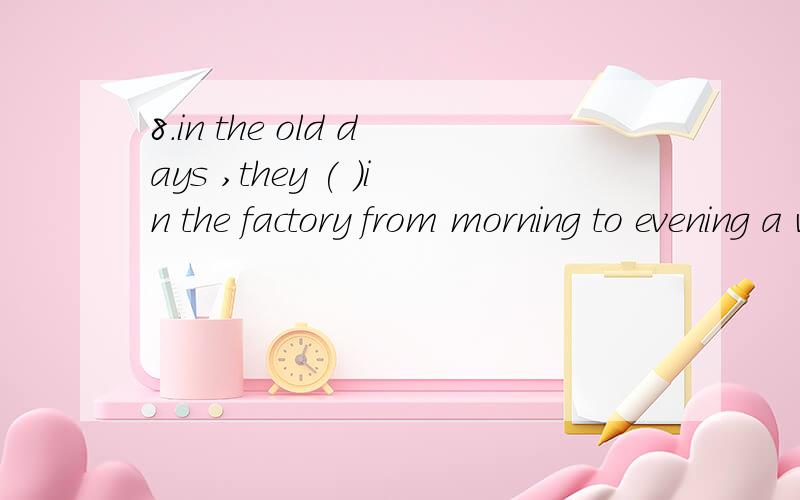8.in the old days ,they ( )in the factory from morning to evening a were made to work b asked to8.in the old days ,they ( )in the factory from morning to evening a were made to work b asked to work c made to work d were asked for work(b) 这句
来源:学生作业帮助网 编辑:作业帮 时间:2024/07/11 20:03:19

8.in the old days ,they ( )in the factory from morning to evening a were made to work b asked to8.in the old days ,they ( )in the factory from morning to evening a were made to work b asked to work c made to work d were asked for work(b) 这句
8.in the old days ,they ( )in the factory from morning to evening a were made to work b asked to
8.in the old days ,they ( )in the factory from morning to evening
a were made to work b asked to work c made to work d were asked for work(b)
这句话是什么意思啊为什么不是a是b呢他们还要求自己要工作啊.应该是被强迫 把.
8.in the old days ,they ( )in the factory from morning to evening a were made to work b asked to8.in the old days ,they ( )in the factory from morning to evening a were made to work b asked to work c made to work d were asked for work(b) 这句
答案:A
解析:考察被动语态和动词用法.
1.由语意知“他们被驱使去劳动”,故用被动语态;
2."be made/asked to do"用不定式to do而不用介词for这里不是这个句型.
整句意思为:在旧时代,他们被驱使在工厂里干活,从早干到晚.